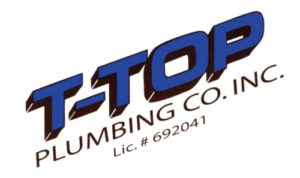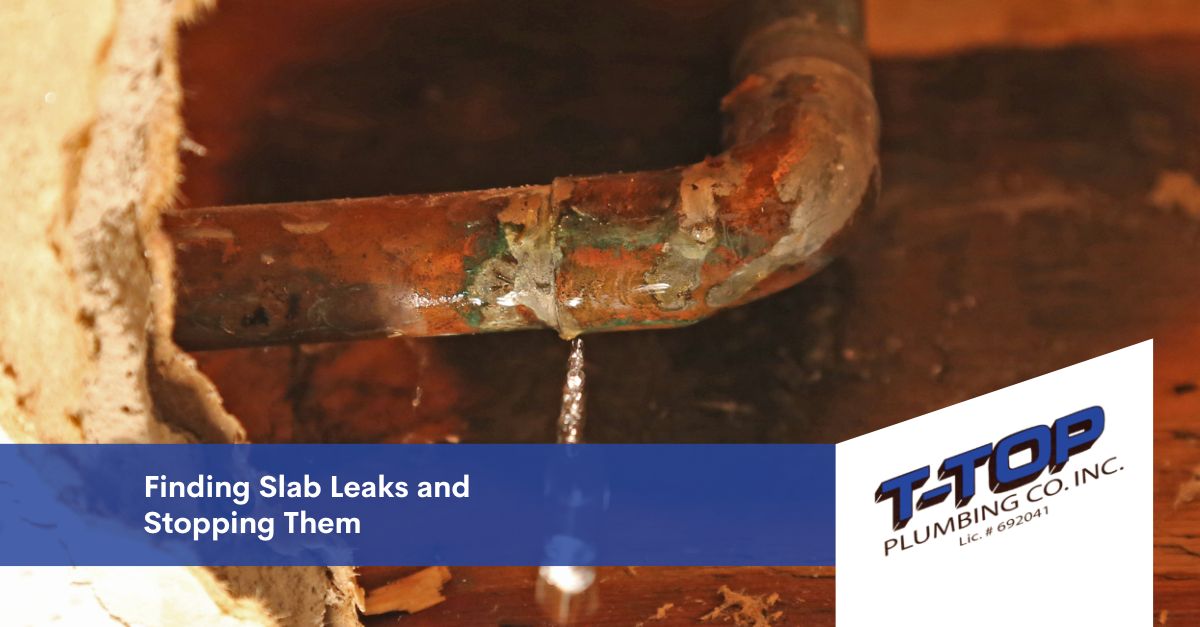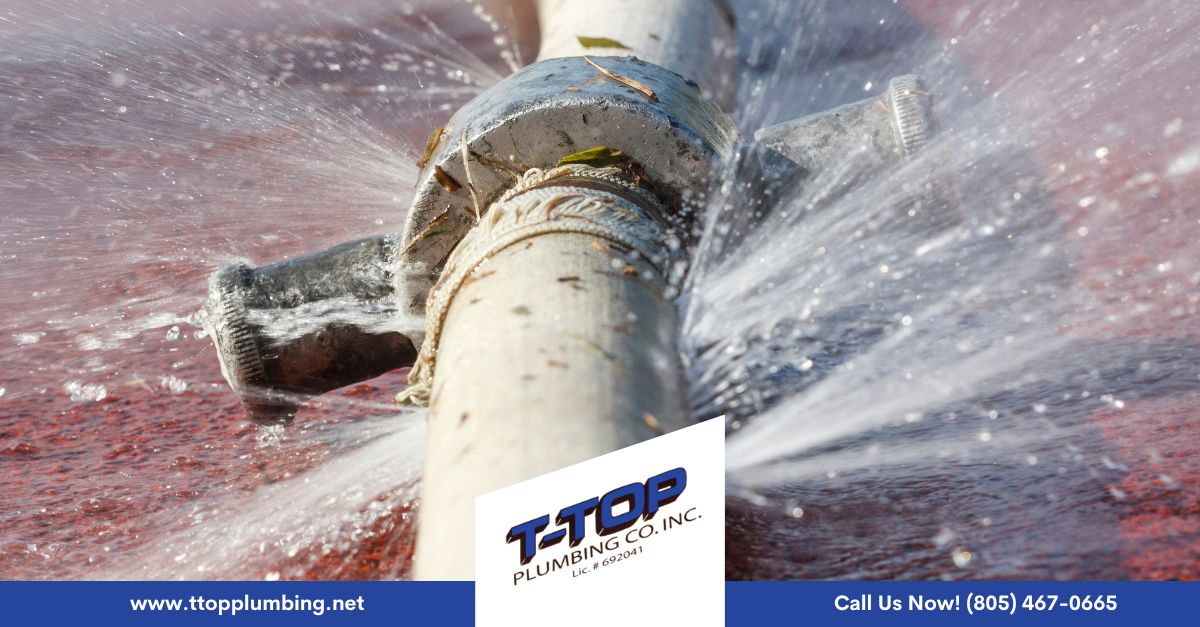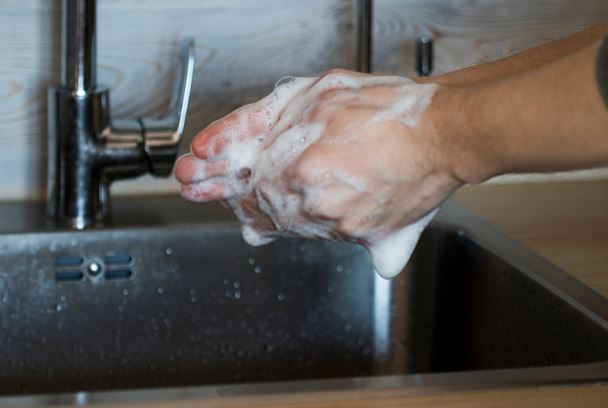Do you hear the sound of running water even when no water is running in your home? Has it been a very long time since a plumber looked at your property? Here at T-Top Plumbing, with our decades of experience and state-of-the-art detection technology, we can find any active leak, no matter where it might be. Some of the most insidious and damaging leaks are slab leaks. Why? Because you may not notice them until they’ve already done damage to your property. But, we can help.
Slab Leak Damage
What kind of damage can a slab leak do? Well, for one, they can greatly undermine your foundation, making it (and consequently, the rest of your property) that much weaker. Additionally, they can truly take a toll on any hardwood floors, baseboards, & drywall you might have. Unfortunately, all too often, the first sign a homeowner has of a slab leak is when their water and gas bills go through the roof, so to speak. Think of it as someone forgetting to shut the faucet off and leaving a stream of water coming out 24 hours a day seven days a week. Left unrepaired, over time, these leaks can lead to mold in your walls, floors, and elsewhere. That can cause a true health hazard for anyone in your home.
How to Tell if You Have Slab Leaks
Beyond everything mentioned previously, another clear sign of a slab leak is a spot on your floor that feels excessively warm or even hot. Do you have pets that love to sit on the same spot on the floor recently? They are attracted to the warmth. If there’s an area of your carpet that’s inexplicably wet, or your hardwood floor Is starting to buckle. You may notice your linoleum flooring discolored and odd looking. If you notice anything in this section or above in your home, it’s worth reaching out to us. If there’s a problem, we can find it and fix it pronto.
How a Slab Leak Can Occur
Over time, soil shifts. Maybe not in a day, maybe not in a month, but over a lengthy period of time, shifting soil below your home’s slab (as well as the day-in-day out wear and tear on your home’s pipes) exerts greater pressure on the concrete. In response, concrete shifts and, eventually, cracks. In practically every home, that concrete slab connects, in certain places, with your home’s underground plumbing system. So, as the concrete moves, it damages your plumbing, loosening fittings, forming cracks, and, eventually, leaking. There’s also friction caused by water turbulence inside the piping where it bends and turns. Over time this friction will wear away your pipe much as the ocean wears down rocks. Once the pipe is worn away enough, the pressure inside your pipe (anywhere between 65 psi and 100 psi) will cause a slab leak to occur. They usually start out as a small pinhole, but left unrepaired, they can grow quickly and flood your home.
Pros to Fix Your Slab Leak and More
We don’t write the above to scare you. Rather, it’s to make you aware and to let you know how these kinds of leaks can be a problem. That said, we can be there to fix them. We’re always glad to look at your property, to figure out if there is a problem and, should we find one, how we can help. You can always reach us, 24/7/365. That way, we can always be there, literally, for our customers. You can reach us any time at (805) 527-8867.






